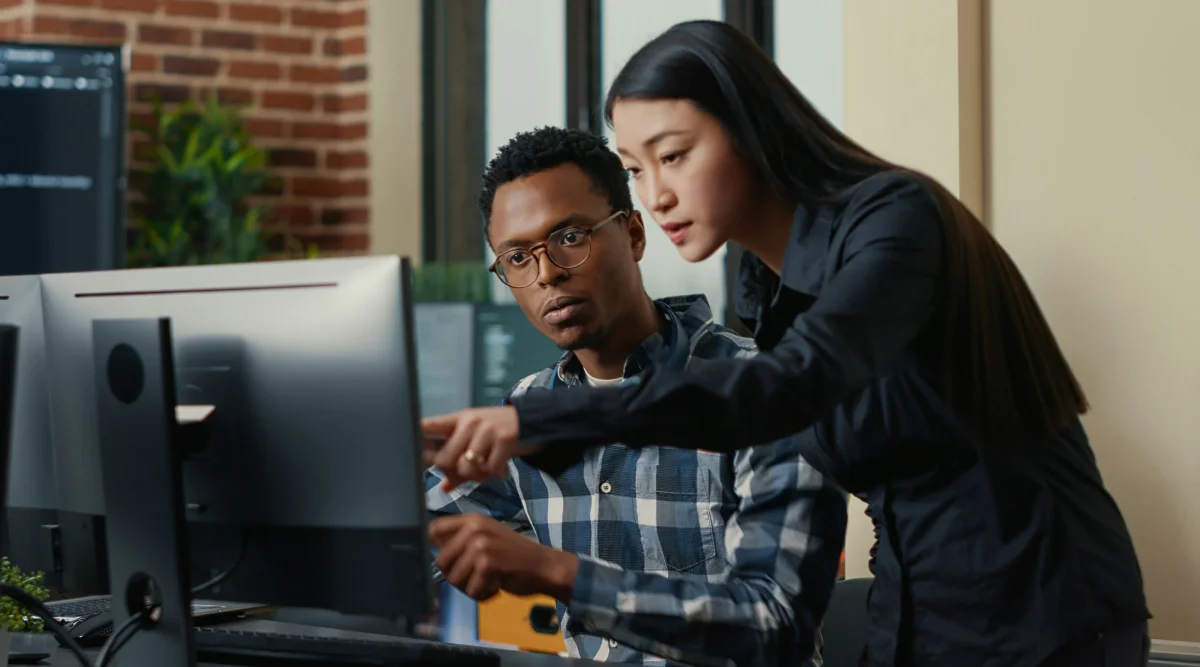Most creative works that are placed in a fixed medium can be copyrighted, which means the creator owns the work and no one can use it without permission. Computer software and code falls into this category and so is eligible to be copyrighted. However, because programming is a field where new creations are often built on existing programs, software owners often give users a broad license to alter the work, a permission sometimes called copyleft.

Type of software licenses
When software is distributed, the owners can choose what kind of use and access they want users to have. Before you work on any software, it's important to determine who the creators are and what kind of license is granted, which can be done by reviewing the software's source code. There are several kinds of software licenses you may encounter.
Proprietary software
This type of software, also sometimes called closed-source software, retains its full copyright, meaning no reuse is permitted. The source code is usually secret and the owner might limit the number of computers you can use the software on for each license you buy. Microsoft Office is a common example of proprietary software.
Copyleft licensing
A copyleft license allows users of the software to copy, make changes, and then distribute their adaptation. However, the user is not permitted to copyright their new version, which means they cannot profit from their adapted work by licensing it.
Unless stated otherwise, a copyleft license lasts as long as the copyright on the original work is in place. Once the work passes into the public domain, which happens automatically 70 years after the death of the creators, anyone can use the work, even without a license. An example of a copyleft license is the GNU General Public License (GPL), which only allows the altered work to be distributed under the original licensing terms. Although a copyleft license encourages derivative works, it also ensures that the works and all their future forms remain free.
Permissive licensing
A permissive license allows users to copy, modify, and distribute the software. This differs from copyleft licensing in that permissive license allows users to copyright and license their adaptations, whereas copyleft does not.
There are usually some minimal requirements placed on use, such as that attribution be given to the original creators. Because of this, some copyright privileges are retained, meaning the software is not in the public domain. An example of a permissive license is the MIT license, which allows reuse only if the original MIT license terms and copyright notice are included and requires the original creators to be credited in any future use. The web-development framework Ruby on Rails is an example of software with a permissive license.
Open-source software
The most permissive of software licenses, an open-source license puts software directly into the public domain. No copyright is retained to the work and anyone can use, change, distribute, and copyright their own adaptations—and even profit from their work. LibreOffice, a free alternative to Microsoft Office, is an example of open-source software.
Creative commons licensing
With the goal of making creative works more accessible, Creative Commons is trying to alter how people think about and approach copyright. The nonprofit organization believes that current copyright laws are too restrictive.
To this end, Creative Commons has created some licensing types to help people make their work available for creative endeavors. However, because its licenses don't contain specifics about distribution of source code, among other reasons, the organization doesn't recommend that its licensing options be used for computer software.
If you have created software, it is a good idea to register your copyright so you can protect it and your creative interests.

